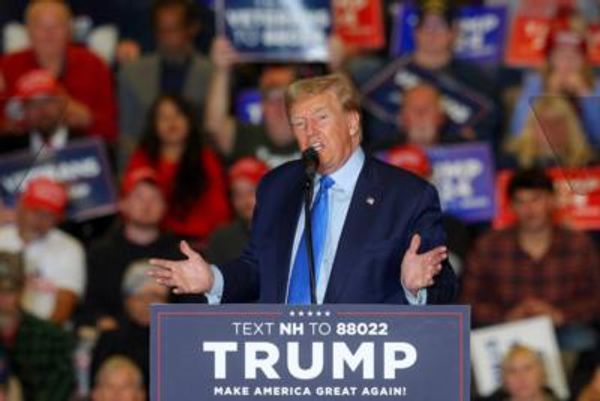
Geneva (AFP) - The UN rights chief will release a long-awaited report on alleged violations in China's Xinjiang region before leaving office later Wednesday, despite strong pressure from Beijing not to publish.
"The report on Xinjiang will go out by the end of the day," said Jeremy Laurence, a spokesman for the outgoing High Commissioner for Human Rights Michelle Bachelet -- who promised to publish the report before her mandate expires at the end of August.
Her report will therefore come out in the final 10 hours of her four-year term and is set to stand as her last act in office.
Amid the allegations of abuses in Xinjiang, Bachelet came under increasing pressure to investigate and speak out about the far-western region of China.Beijing stands accused of detaining more than one million Uyghurs and other Muslim minorities there.
Nearly a year ago, the former Chilean president told the UN Human Rights Council an independent evaluation of the situation in Xinjiang was needed, and indicated that her office was finalising a report on the matter.
But the report was repeatedly delayed amid growing impatience from rights groups and some countries.
A 'farce': China
Speaking earlier Wednesday, Chinese foreign ministry spokesman Zhao Lijian dismissed the report and said he hoped Bachelet would not publish it in her final hours in office.
"We firmly oppose the release of the so-called Xinjiang-related report by the UN Human Rights Office," he said.
"This report is a farce orchestrated by the US and a small number of Western powers," he said.
"We hope that the high commissioner will make the right decision."
Zhao said the UN rights chief should act with "objectivity, impartiality, non-selectivity and non-politicisation" and oppose "double standards on human rights issues".
In her farewell press conference on Thursday, Bachelet admitted she was under "tremendous pressure to publish or not to publish" the long-delayed report.
"We're trying very hard to do what I promised," Bachelet said."But I will not publish or withhold publication due to any such pressure."
Campaigners accuse China of a litany of abuses in Xinjiang, including mass incarceration, forced labour, compulsory sterilisation and the destruction of Uyghur cultural and religious sites.
The United States and lawmakers in other Western countries have gone as far as accusing China of committing "genocide" against the minority groups.
Beijing vehemently rejects the claims, and has long insisted it is running vocational training centres in Xinjiang designed to counter extremism.
It claims the allegations are part of a plot by the United States and other Western nations to smear China and contain its rise.
Visit to region
In May, Bachelet concluded a rare six-day visit to China that also took her to Xinjiang.
But the long-awaited trip to the region sparked criticism from rights groups.
During her visit, she had urged Beijing to avoid "arbitrary and indiscriminate" measures in Xinjiang.
But rights groups criticised her for what they said was her lack of firmness.They said she had capitulated to a stage-managed tour of the region orchestrated by Beijing.
Human Rights Watch said the report would help to show that no state is above the law.
"Better late than never," HRW's China director Sophie Richardson told AFP."If this does in fact happen, it will be a watershed moment."
The non-governmental organisation would like to see the report reach the same assessments as HRW and others, given the "mountains of evidence".
But she said that more than the content, the publication of the report itself would be important since it would force the UN Human Rights Council to address the issue.
"Not taking this forward is not an option," she said.
nl-rjm-burs/vog/jj







